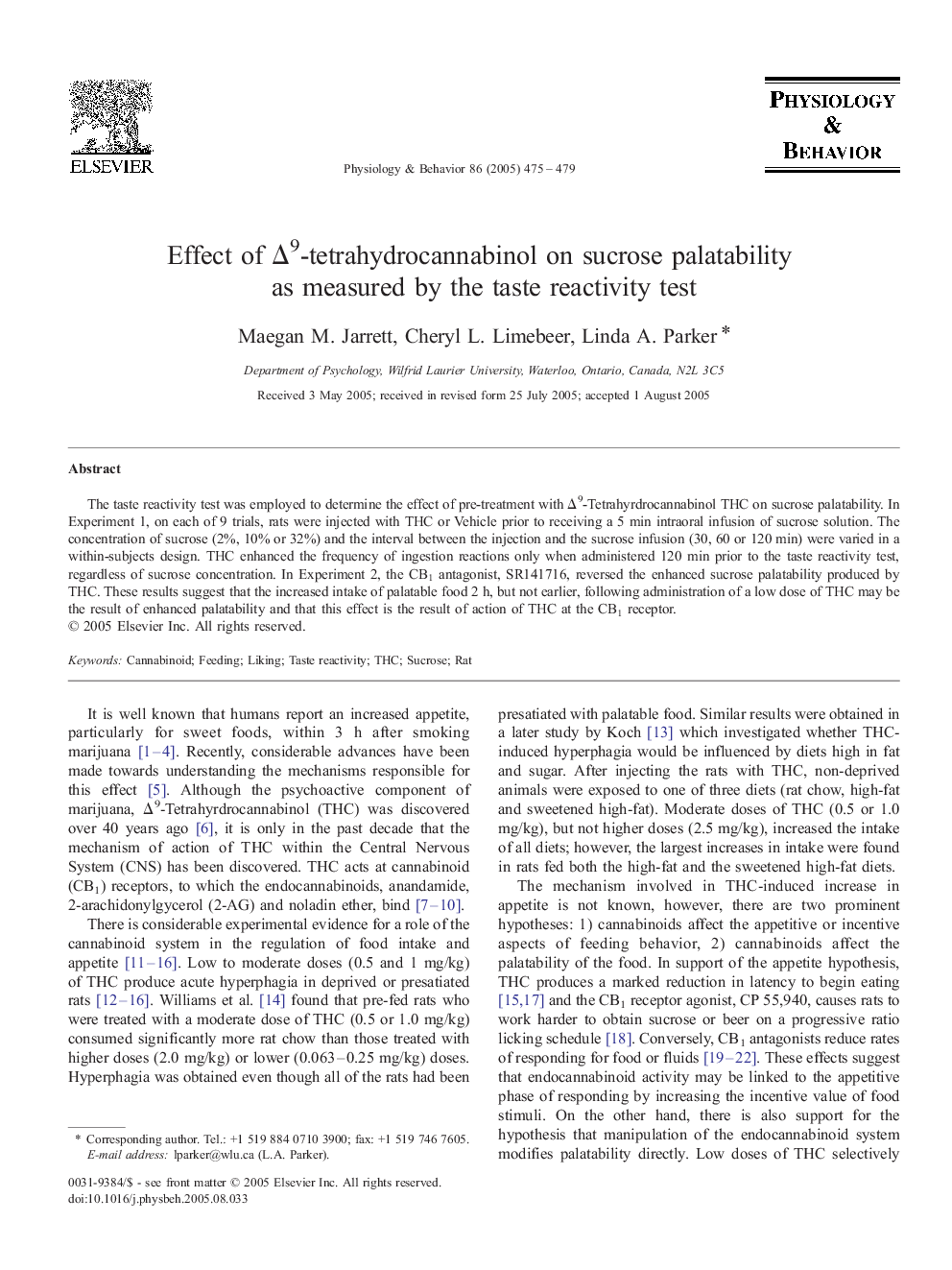| Article ID | Journal | Published Year | Pages | File Type |
|---|---|---|---|---|
| 9149539 | Physiology & Behavior | 2005 | 5 Pages |
Abstract
The taste reactivity test was employed to determine the effect of pre-treatment with Î9-Tetrahyrdrocannabinol THC on sucrose palatability. In Experiment 1, on each of 9 trials, rats were injected with THC or Vehicle prior to receiving a 5 min intraoral infusion of sucrose solution. The concentration of sucrose (2%, 10% or 32%) and the interval between the injection and the sucrose infusion (30, 60 or 120 min) were varied in a within-subjects design. THC enhanced the frequency of ingestion reactions only when administered 120 min prior to the taste reactivity test, regardless of sucrose concentration. In Experiment 2, the CB1 antagonist, SR141716, reversed the enhanced sucrose palatability produced by THC. These results suggest that the increased intake of palatable food 2 h, but not earlier, following administration of a low dose of THC may be the result of enhanced palatability and that this effect is the result of action of THC at the CB1 receptor.
Related Topics
Life Sciences
Biochemistry, Genetics and Molecular Biology
Physiology
Authors
Maegan M. Jarrett, Cheryl L. Limebeer, Linda A. Parker,
